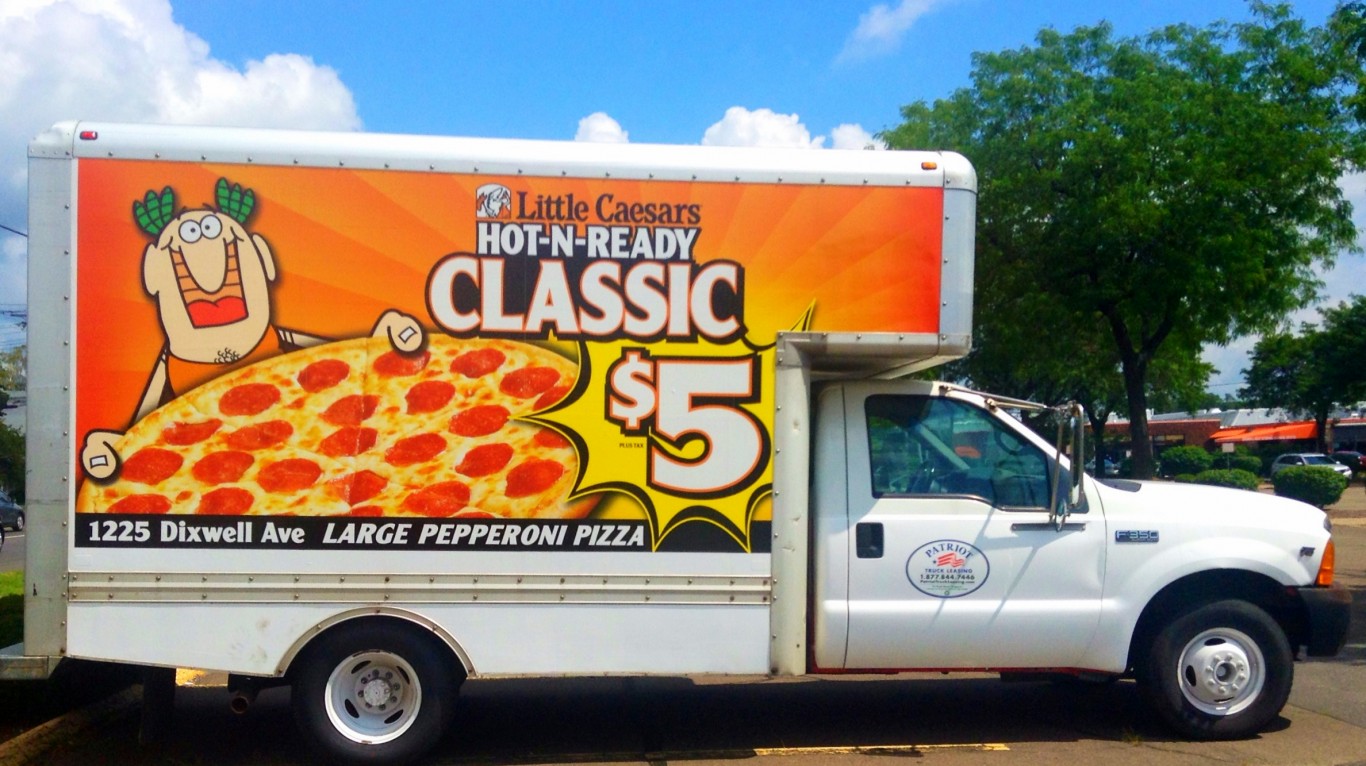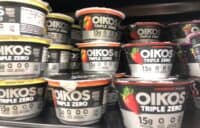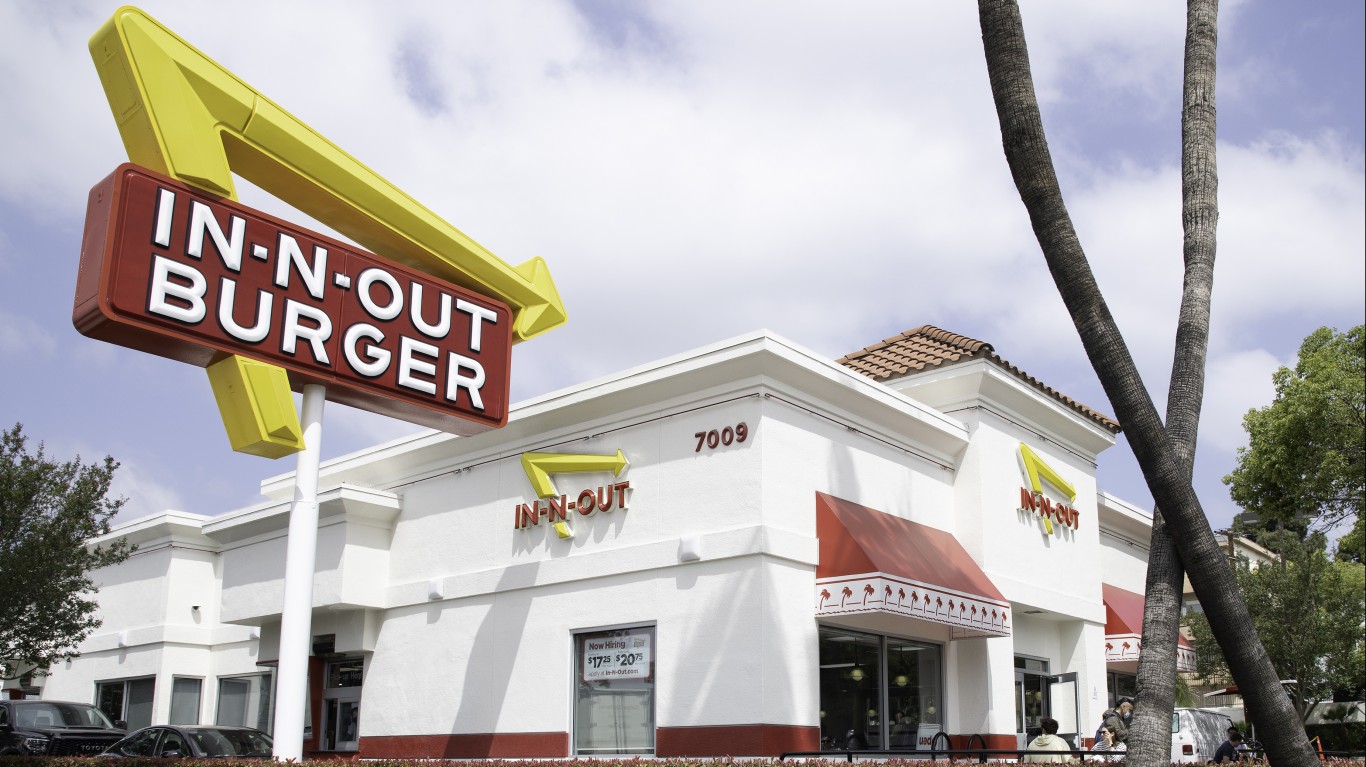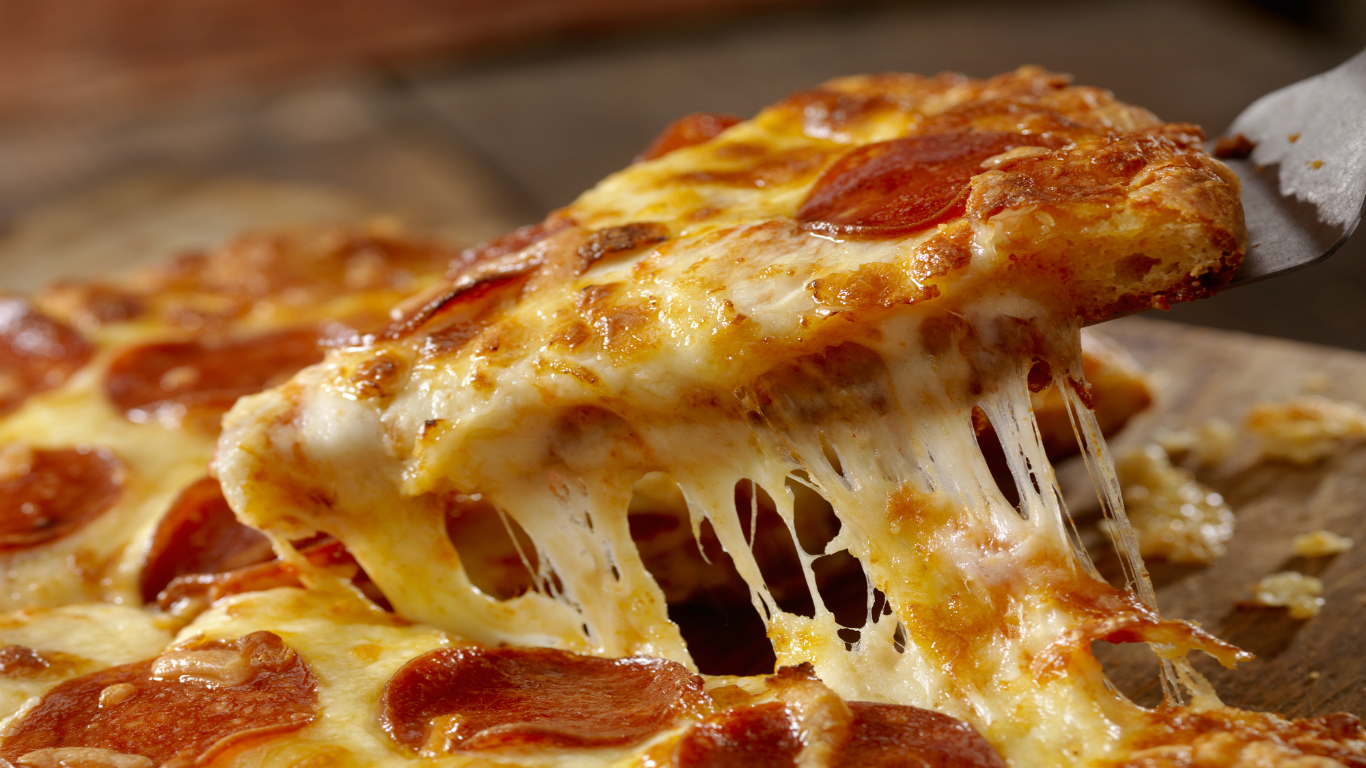
About 3 three billion pizzas are sold in America each year — about 350 slices a second. Not counting Italian, Mediterranean, or American restaurants that may have a pizza section on their menus, there are more than 61,000 pizzerias around the U.S., and more than 31,000 of those are chain franchise units.
Pizza chains are some of the biggest and most successful food-service behemoths in the nation. Restaurant Business, a leading trade publication, releases an annual ranking of the nation’s top 250 restaurant chains. The latest edition uses the most recent U.S. sales figures, from 2018, to rank the chains. (The number of units for each chain was computed at the same time, and may have changed since then.) There are seven pizza operations in the Restaurant Business list’s top 100, with the top four all recording U.S. sales of over $2 billion for the year, and in one case more than three times that.
24/7 Tempo delved further into the list, though, to come up with the top 15 pizza chains in America (the farthest down came at No. 153).
Click here for the top 15 pizza chains in America
These chains are all spread across the country, offering identical or near-identical fare from Maine to California, Washington to Florida, but they all started small and locally. Maybe the same thing will happen to some of these regional pizza chains that really should go national.
Part of the appeal of pizza is that it’s a dish we can, in effect, design ourselves. All the pizza chains, as well as many independents, invite their customers to choose whatever sauces and toppings they wish. A ravenous carnivore can pile six or eight different kinds of meat onto a crust; an abstemious vegan can opt for just tomatoes and bell peppers, with plant-based cheese, please. It’s no wonder that the fourth-most-ordered dish recorded last year by DoorDash, the country’s number one food delivery service, was “make your own pizza.”
Another facet of pizza’s appeal is that it’s a communal dish, something to share with friends and family. It’s the quintessential party food, bringing everyone together around the table, where they can take as little or (assuming that the supply is adequate) as much as they like.
Chain restaurant pizza, of course, isn’t the highest expression of the pizza-maker’s art. It’s not likely to be on the level of what’s served at America’s 25 favorite pizza joints.
All the chains on this list, though, offer dependable, accessible fare with considerable variety of choice. It’s easy to see why they’re so successful.
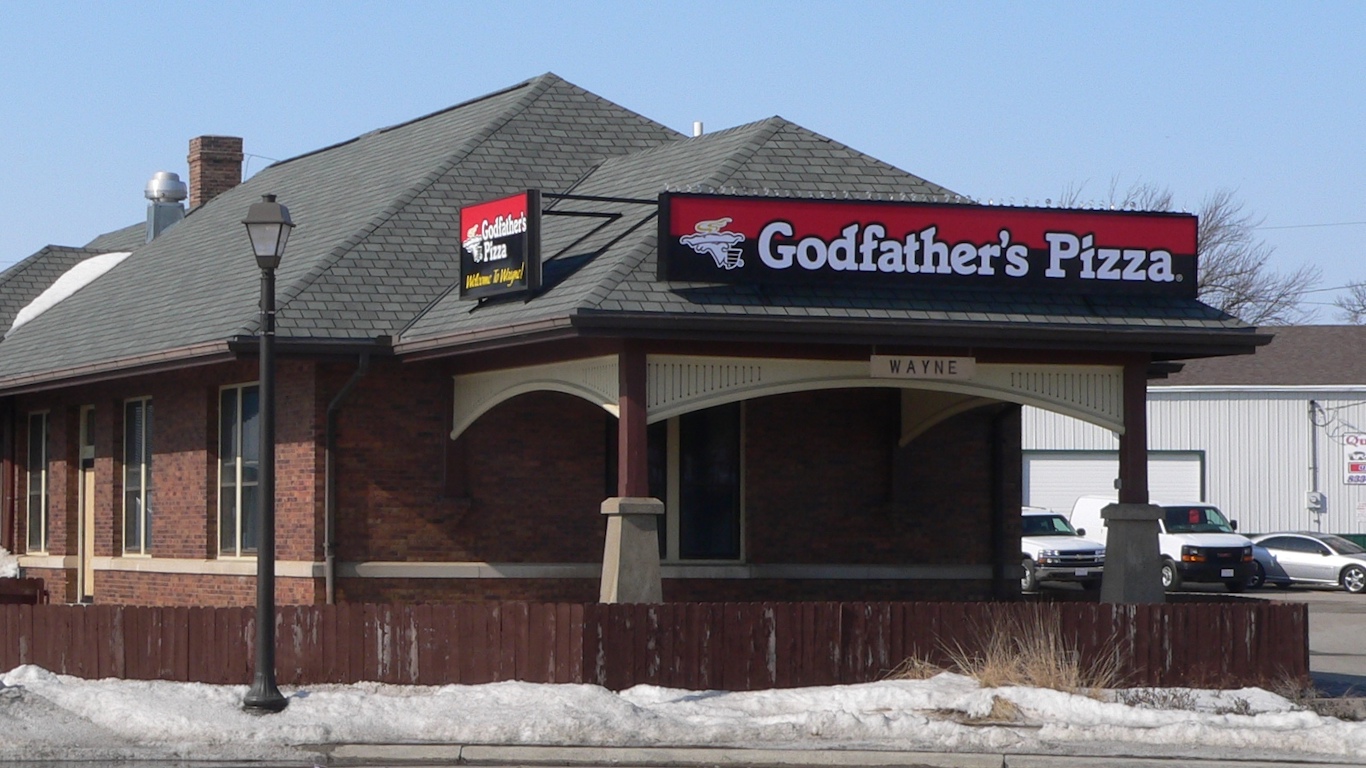
15. Godfather’s Pizza
> U.S. sales: $240 million (est.)
> Number of U.S. units: 548
Not everyone finds this chain’s mob-themed branding to be in good taste, but it has won fans for its wide array of choices. Pizzas come in five sizes, with four different crust options, and besides a number of specialty variations (Baja Taco, Buffalo Chicken, Hawaiian, etc.), there are two dozen toppings for DIY pies, not counting sauces, dips, and “drizzles.”
[in-text-ad]
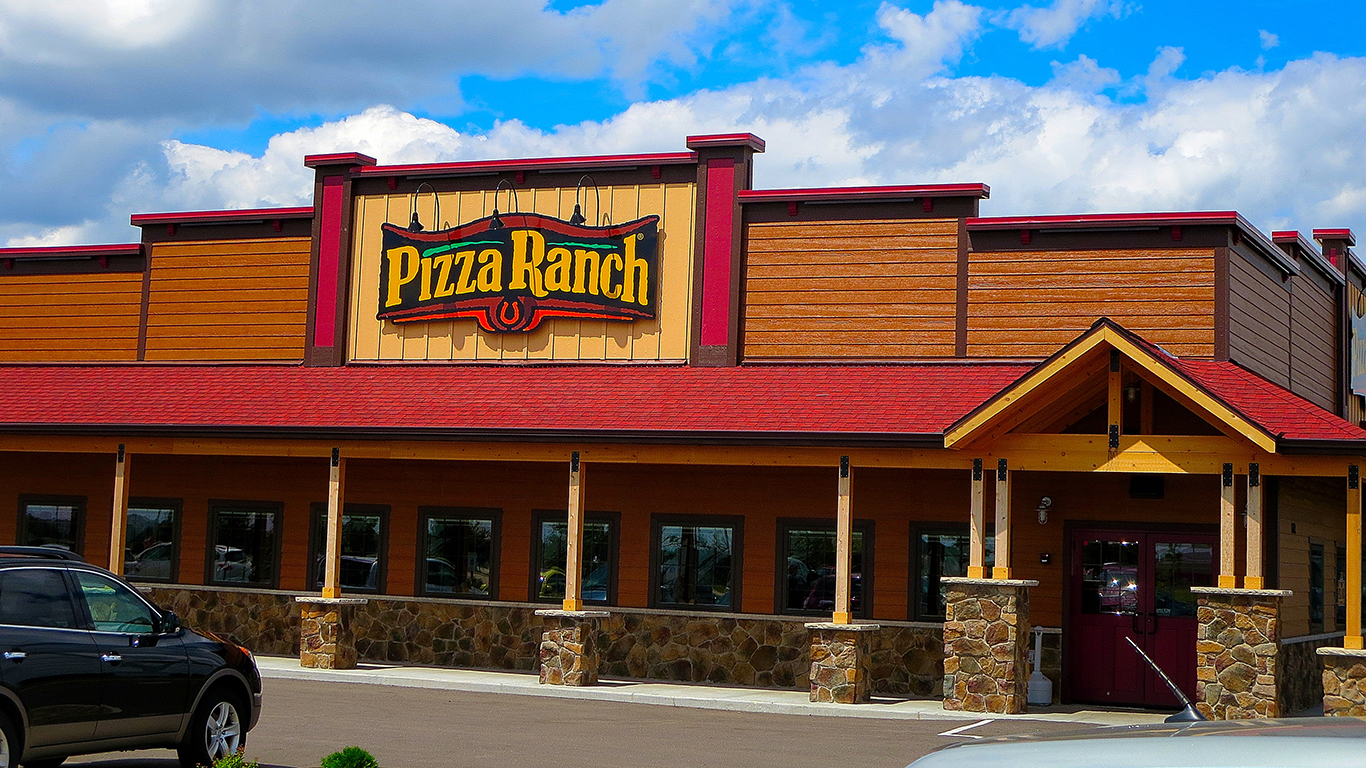
14. Pizza Ranch
> U.S. sales: $249 million
> Number of U.S. units: 207
Pizza, chicken, and salads, served buffet style, are the specialties at this Midwestern fast casual chain, founded and based in Iowa. Among the distinctly non-Italian pizza varieties are the BLT, the Mac & Cheese, the Bacon Cheeseburger, and the Texan Taco. Some locations have FunZone Arcades attached.
13. Blaze Pizza
> U.S. sales: $326 million
> Number of U.S. units: 296
“Fast-Fire’d Custom Built Artisanal Pizzas” are the thing at this Pasadena, California-based chain, founded in 2011 on the Chipotle design-your-own model. Dough is fresh-made daily and toppings include applewood-smoked bacon, grilled chicken, artichokes, zucchini, gorgonzola, vegan cheese, and spicy red sauce, along with more than 30 other choices.
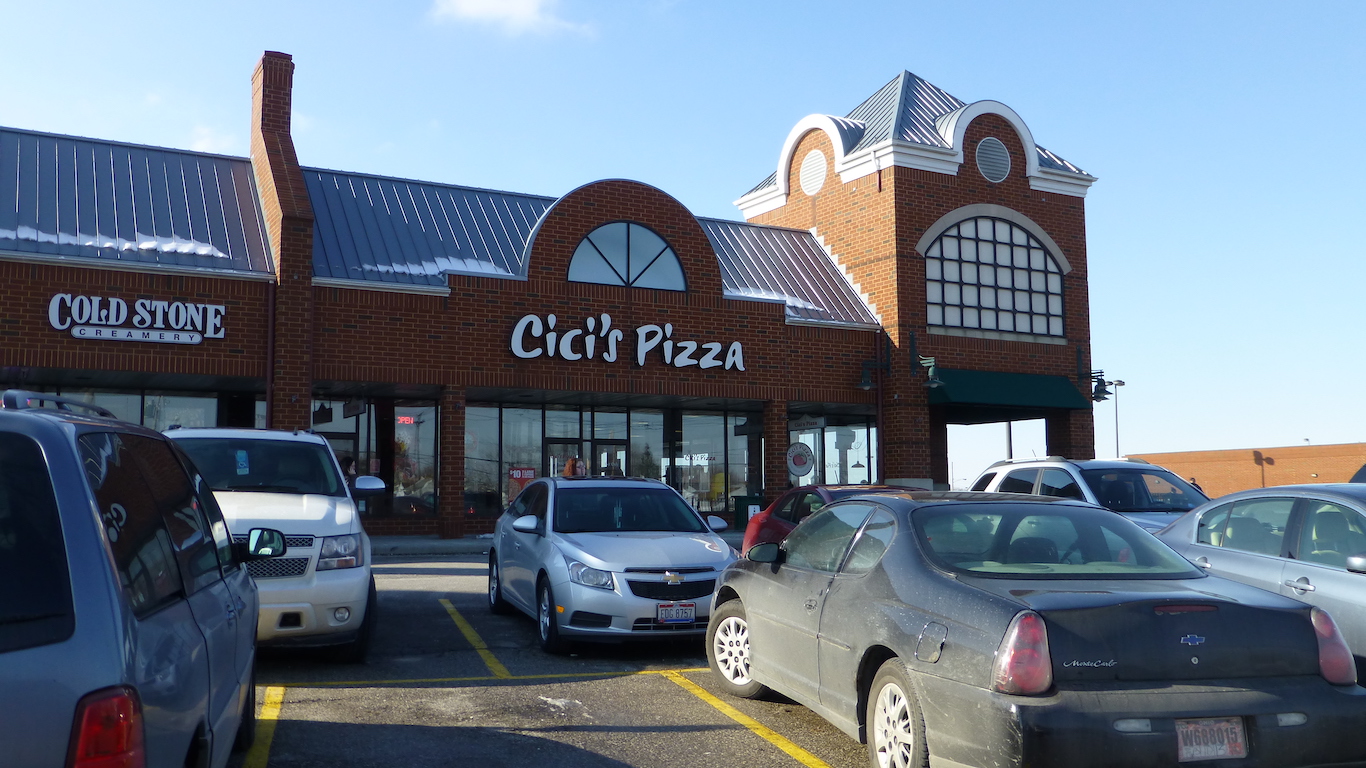
12. Cicis
> U.S. sales: $350 million (est.)
> Number of U.S. units: 423
Cicis is built around an “unlimited pizza buffet” (there’s also a salad bar, a selection of chicken wings that must be ordered separately). Pizzas come as conventional round pies, pan pizzas, flatbread pizzas, and stuffed crust pizzas. Besides the usual combos, possibilities include Pepperoni & Jalapeño, Zesty Ham & Cheddar, and Chicken Bacon Club.
[in-text-ad-2]
11. Jet’s Pizza
> U.S. sales: $356 million
> Number of U.S. units: 397
This suburban-Detroit-based chain grew out of Jetts Party Shoppe & Pizzeria, opened in Sterling Heights, Michigan, in 1978. The rectangular-shaped pizzas include Aloha BBQ Chicken, BLT, and All Meaty versions, but there are copious build-your-own options. Six crust types are offered (including deep dish and cauliflower) as are eight crust flavorings (butter, poppy seed, Cajun, etc.).
10. Chuck E. Cheese’s
> U.S. sales: $383 million (est.)
> Number of U.S. units: 541
Created in California by the co-founder of the Atari video game company and now based in Texas, Chuck E. Cheese is perhaps better known for its video game arcades, animatronic cartoon figures, and costumed kids’ birthday shows than for its food. Nonetheless, pizza is a large part of the experience, both DIY and house-designed (like Five Meat and Cali Alfredo), and Restaurant Business positions the chain firmly within the pizza category. The extensive menu also includes wings, sandwiches, a salad bar, and a host of desserts, for birthdays and otherwise.
[in-text-ad]
9. MOD Pizza
> U.S. sales: $397 million
> Number of U.S. units: 404
Founded in Seattle in 2008, MOD serves individual-size “artisan-style” pizzas made to order with a choice of more than 30 toppings. Among the more uncommon ones are spicy chicken sausage, fresh-chopped basil or rosemary, dairy-free cheese, and “Mama Lil’s Sweet Hot Peppas.”
8. Hungry Howie’s Pizza
> U.S. sales: $410 million
> Number of U.S. units: 548
Like Jet’s Pizza (No. 11), Hungry Howie’s got started in a suburb of Detroit — in this case in 1973. The chain’s claim to fame is having invented Flavored Crust options (asiago cheese, garlic herb, ranch, etc.). Available in five sizes, with four crust variations (one of them gluten-free), the pizzas include Asian Chicken, Bacon Cheddar Cheeseburger, and Howie Maui versions, with 19 toppings available for those who prefer to build their own.
7. Round Table Pizza
> U.S. sales: $436 million
> Number of U.S. units: 427
Launched in Menlo Park, California, in 1959 — a dozen years before anyone called the area Silicon Valley — and now based in Atlanta, Round Table styles itself “Pizza Royalty.” Made in five sizes, the pies include King Arthur’s Supreme (pepperoni, Italian sausage, salami, linguica, mushrooms, green peppers, onions, and black olives) and Guinevere’s Garden Delight (the same but without the meats and with tomatoes added). Diners may also construct their own, choosing from more than 20 toppings.
[in-text-ad-2]
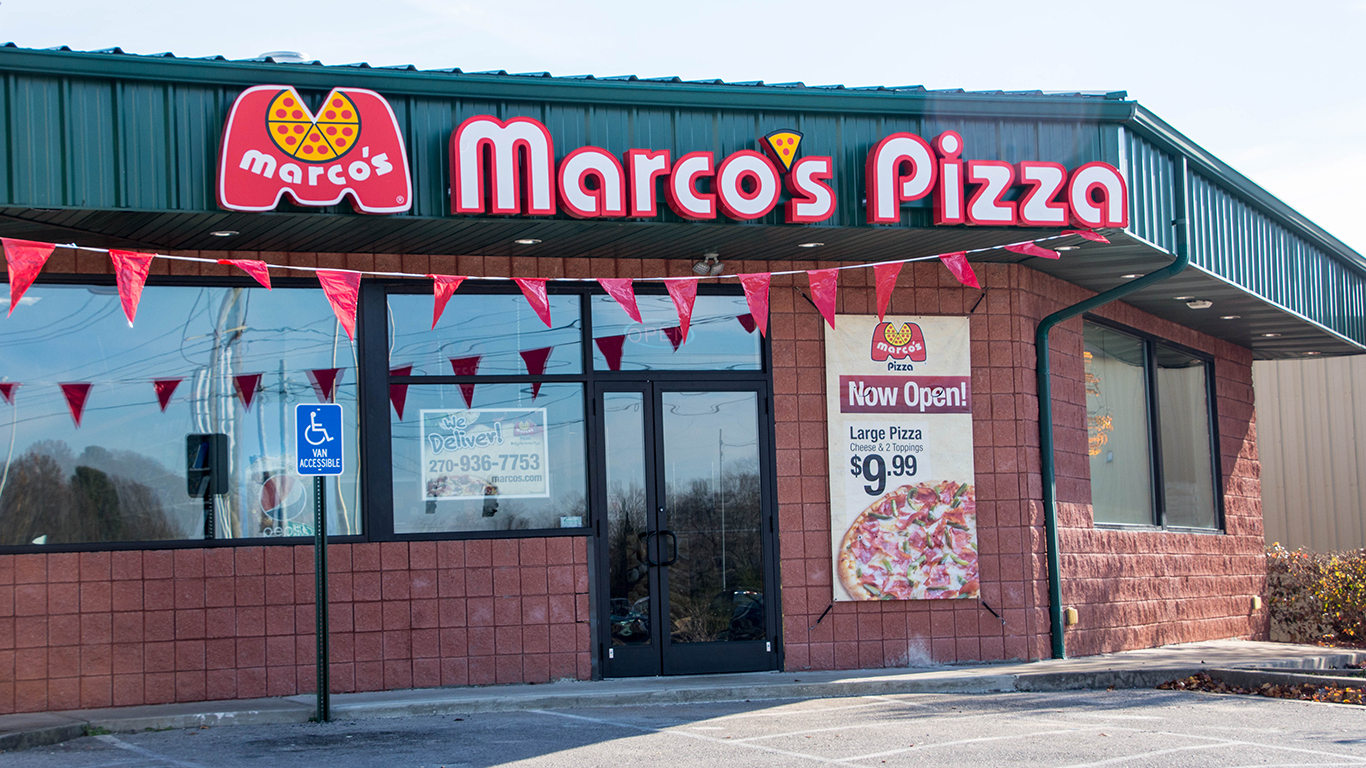
6. Marco’s Pizza
> U.S. sales: $599 million
> Number of U.S. units: 833
Ohio-born and -based Marco’s, opened by Italian immigrant Pasquale Giammarco in 1978, offers half-a-dozen pizza variations — nothing too crazy — as well as a build-your-own option. Dough and sauce are made daily in each store, and all pizzas involve a proprietary three-cheese blend (which might be a mixture of mozzarella, provolone, and muenster) and sometimes other cheeses as well.
5. Papa Murphy’s Pizza
> U.S. sales: $795 million
> Number of U.S. units: 1,400
Papa Murphy’s is the result of a 1995 merger between two other pizza chains, Papa Aldo’s and Murphy’s. It is based in Vancouver, Washington. Pies are sold on a take-and-bake basis — that is, they’re made up to customer specifications but left uncooked to be put into the oven at home, obviously solving the problem of soggy or tepid delivery pizza. Five crust choices are offered (including gluten-free), along with more than 25 toppings.
[in-text-ad]
4. Papa John’s
> U.S. sales: $2.712 billion
> Number of U.S. units: 3,199
Born in Jeffersonville, Indiana, in 1984 (it is now based in the similarly named Jeffersontown, Kentucky), Papa John’s has been in the news in recent years due to controversies involving founder John Schnatter. These include legal battles, accusations of racism, and Schnatter’s contention that his business had suffered after the NFL kneeling protests during the national anthem spurred the company into canceling TV advertising. None of that has seemed to dim the public appetite for Papa John’s wide range of pre-planned or create-your-own pizzas, including those with garlic parmesan crusts.
3. Little Caesars
> U.S. sales: $3.820 billion
> Number of U.S. units: 4,350
Still another nationwide pizza chain with origins in the Detroit suburbs (see Jet’s Pizza, No. 11, and Hungry Howie’s Pizza, No. 8), Little Caesars grew out of a small storefront operation opened in 1959. With thin-crust, classic, and rectangular “Deep!Deep! Dish” pizzas, as well as pretzel crust and stuffed crust variations, Little Caesars’ varieties include the 5 Meat Feast (with Crazy!Crazy!” amounts of bacon, sausage, ham, pepperoni, and beef) and the Ultimate Supreme (pepperoni, sausage, mushrooms, onions, and green peppers).
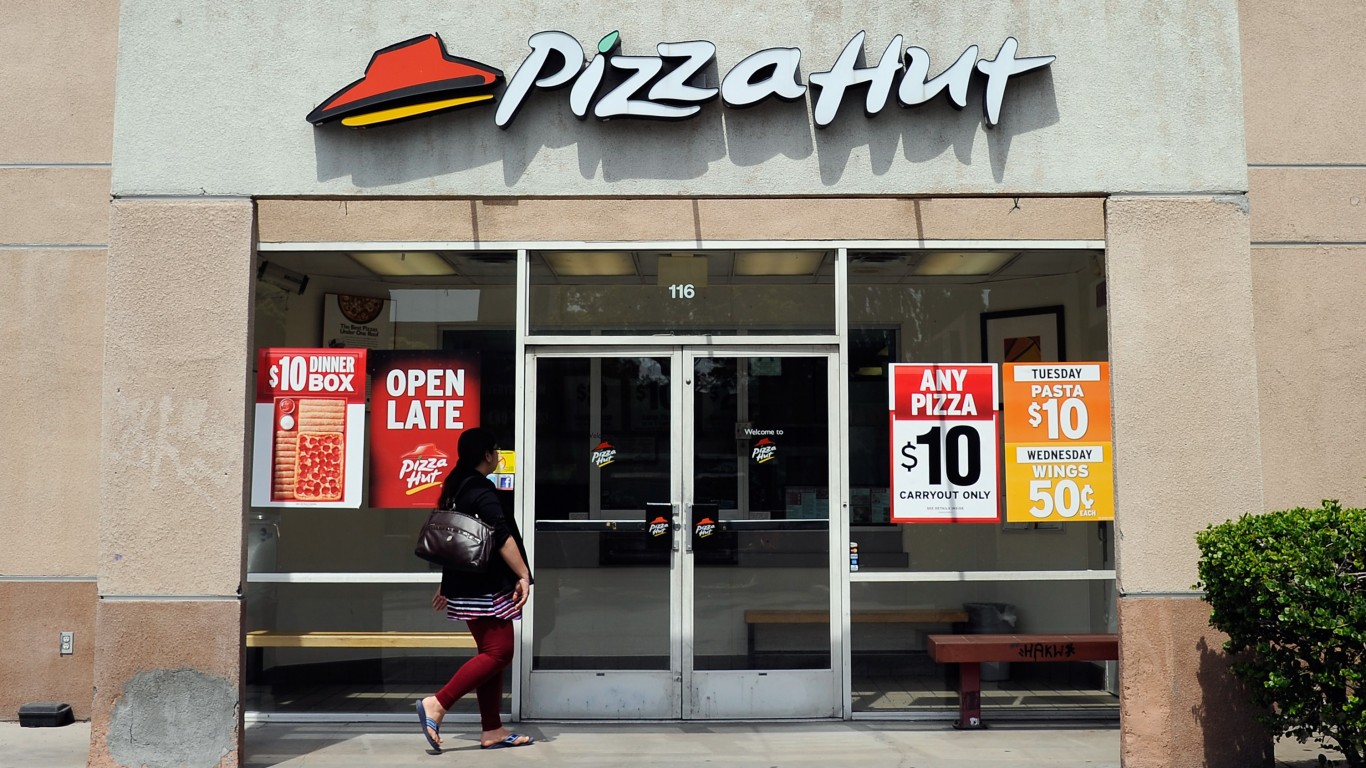
2. Pizza Hut
> U.S. sales: $5.526 billion
> Number of U.S. units: 7,482
America’s number-two pizza chain was started by two brothers in Wichita, Kansas, in 1958. According to company lore, they gave it such a short name because their sign only had room for eight letters (plus a space, obviously). Standard meat, chicken, and vegetable pizzas are available. Toppings for DIY pies are the usual, with not quite as many options as some other chains offer, and crust options include multigrain and stuffed, among others.
[in-text-ad-2]
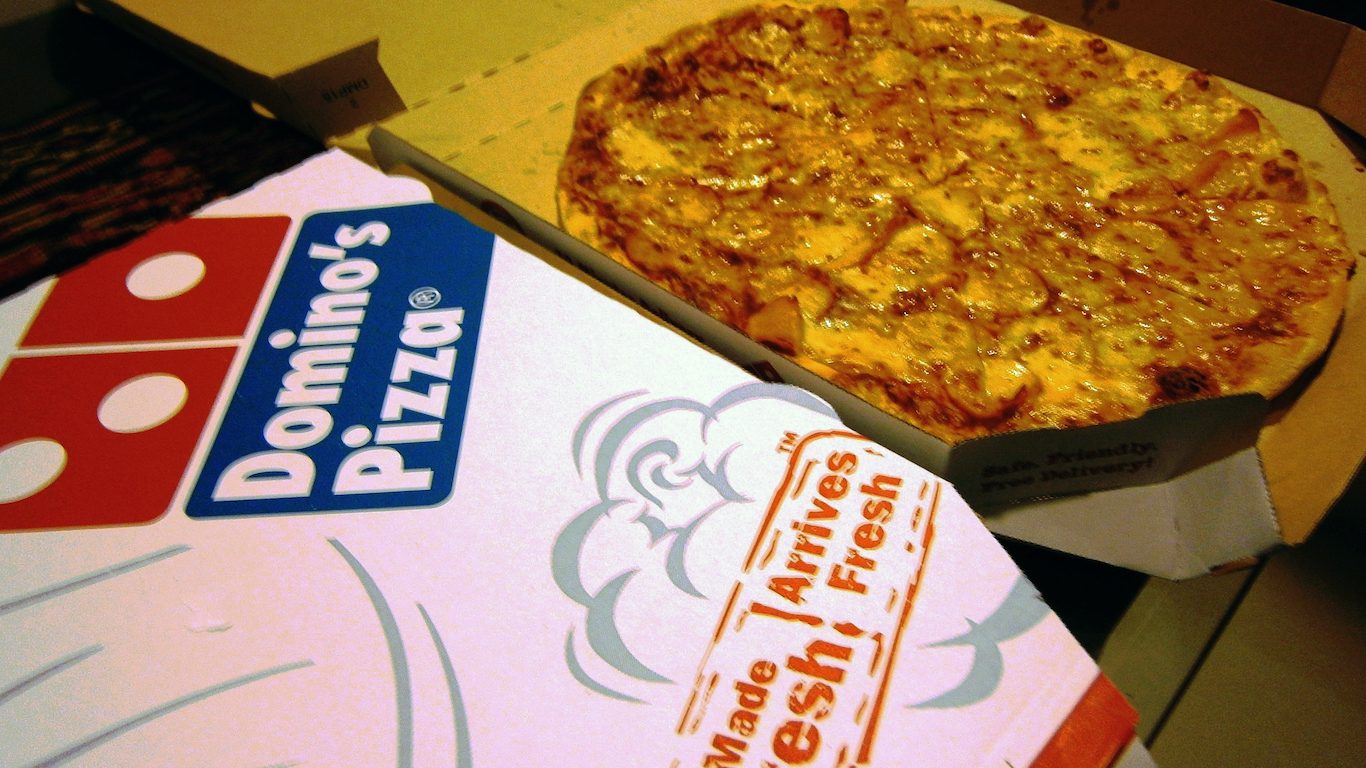
1. Domino’s
> U.S. sales: $6.591 billion
> Number of U.S. units: 5,876
The only pizza chain in the Restaurant Business top 10, Domino’s is the fourth Michigan-born operation on this list (see Nos. 11, 8, and 3), but this time from a suburb of Ann Arbor, not Detroit. Begun in 1960, it now counts about 16,000 locations around the globe. Philly Cheese Steak, Pacific Veggie, and Wisconsin 6 Cheese are among the varieties offered, and of course pizzas may be customized. Chicken dishes, sandwiches, and pastas are also on the menu.
100 Million Americans Are Missing This Crucial Retirement Tool
The thought of burdening your family with a financial disaster is most Americans’ nightmare. However, recent studies show that over 100 million Americans still don’t have proper life insurance in the event they pass away.
Life insurance can bring peace of mind – ensuring your loved ones are safeguarded against unforeseen expenses and debts. With premiums often lower than expected and a variety of plans tailored to different life stages and health conditions, securing a policy is more accessible than ever.
A quick, no-obligation quote can provide valuable insight into what’s available and what might best suit your family’s needs. Life insurance is a simple step you can take today to help secure peace of mind for your loved ones tomorrow.
Click here to learn how to get a quote in just a few minutes.
Thank you for reading! Have some feedback for us?
Contact the 24/7 Wall St. editorial team.
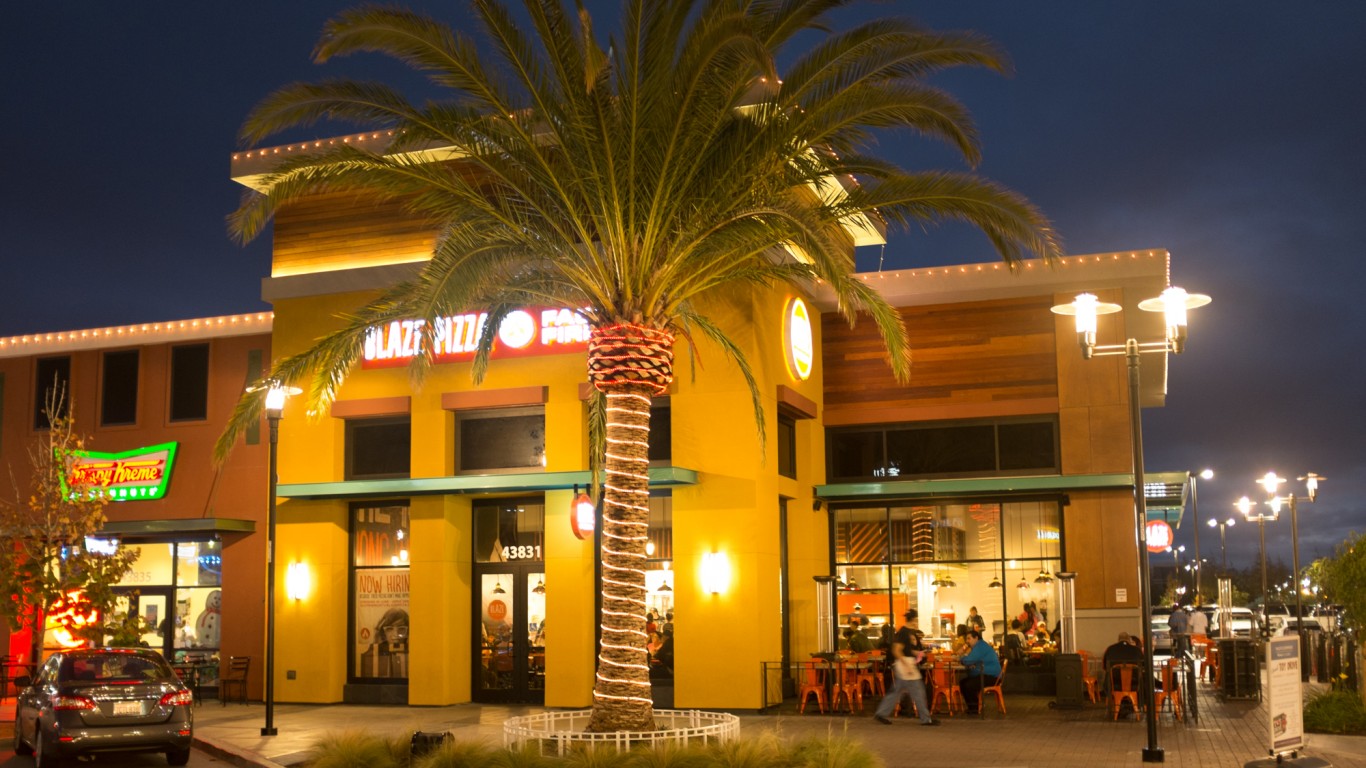
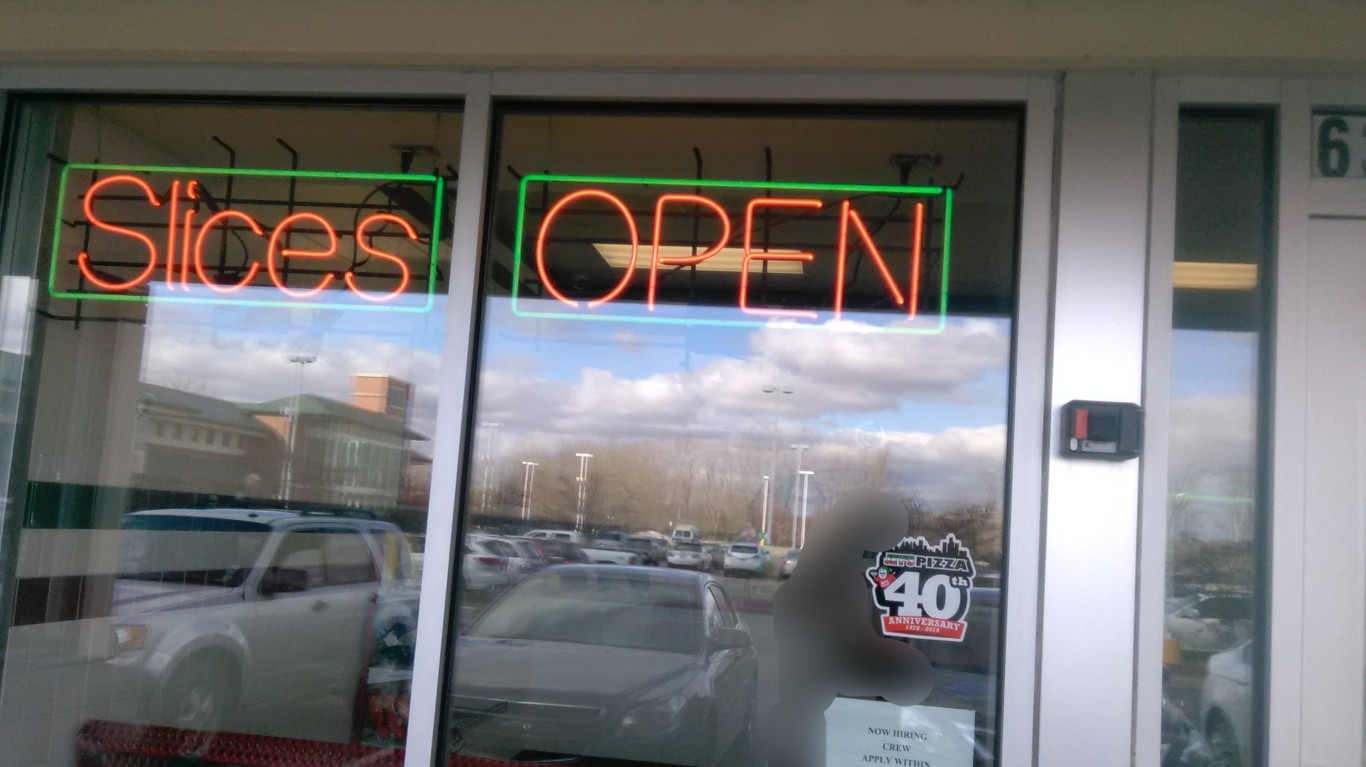
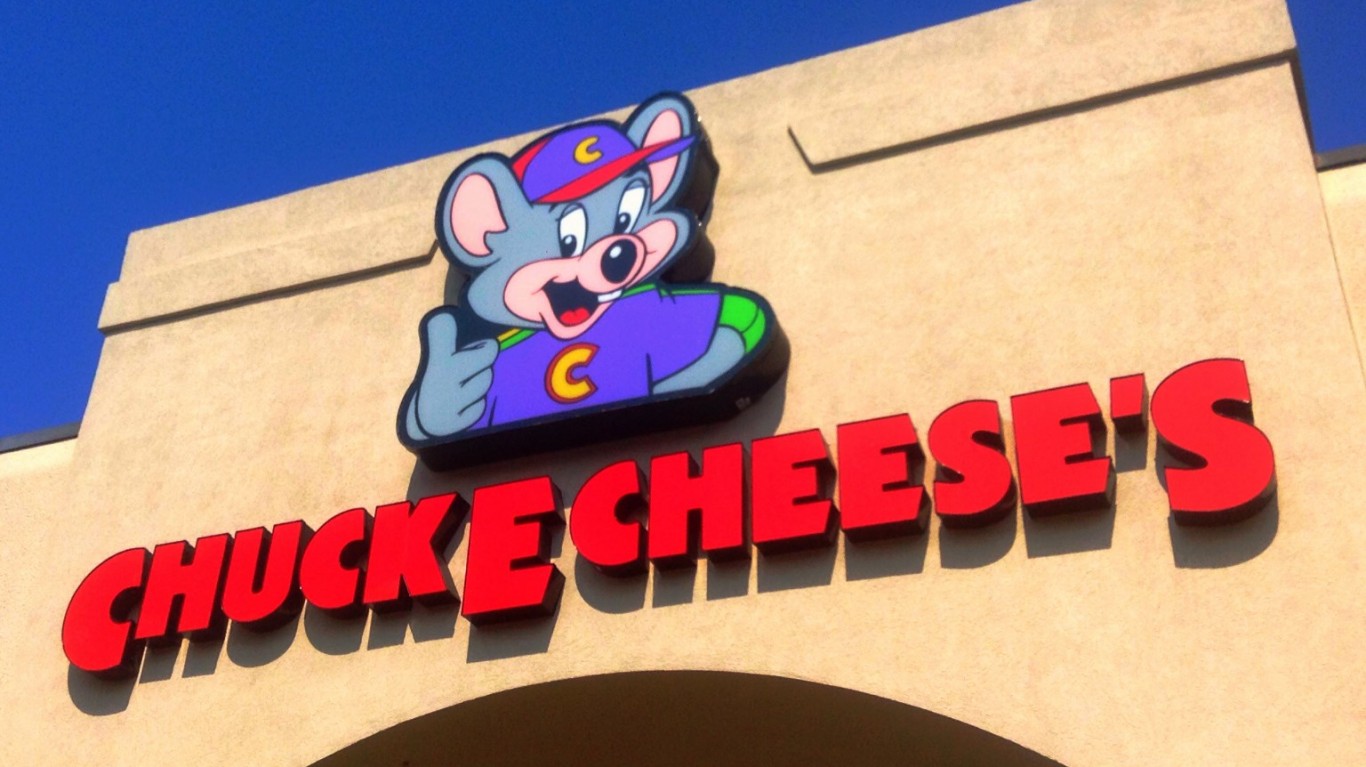
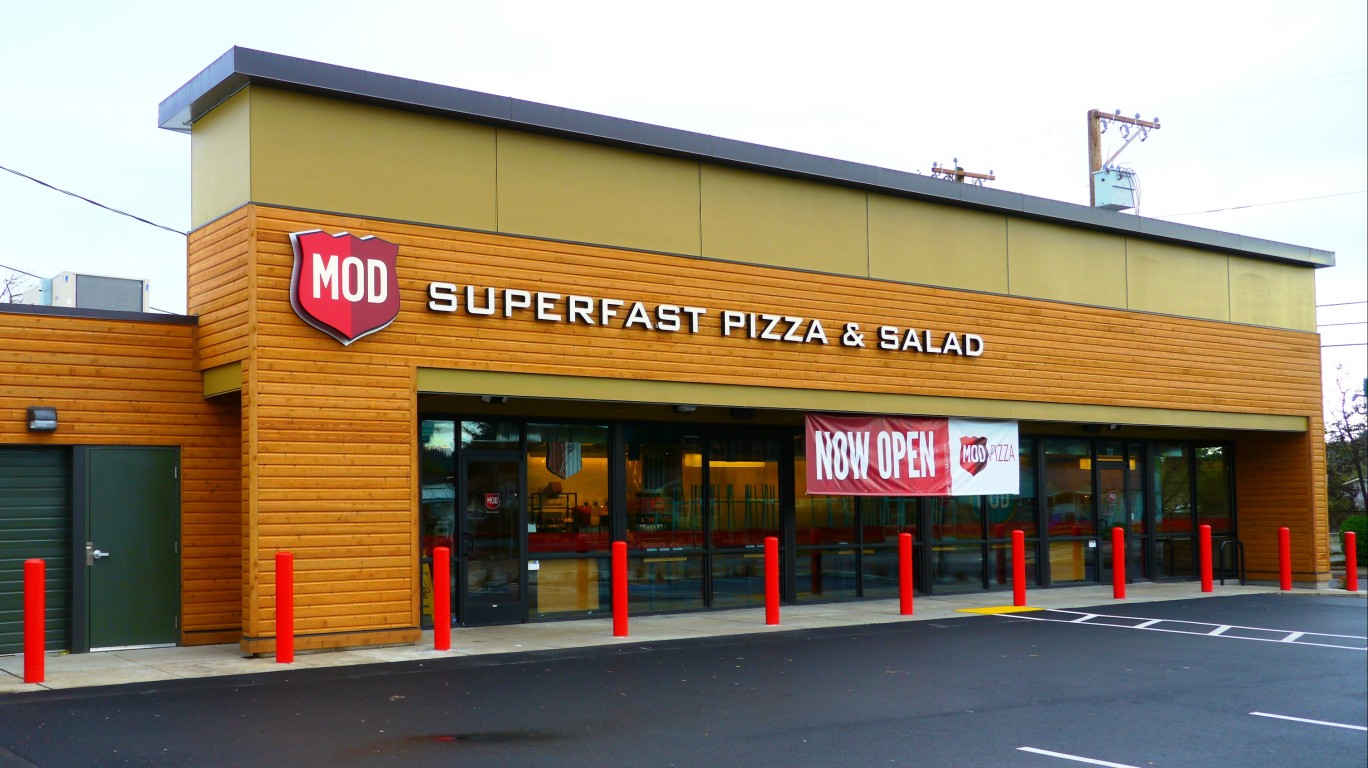
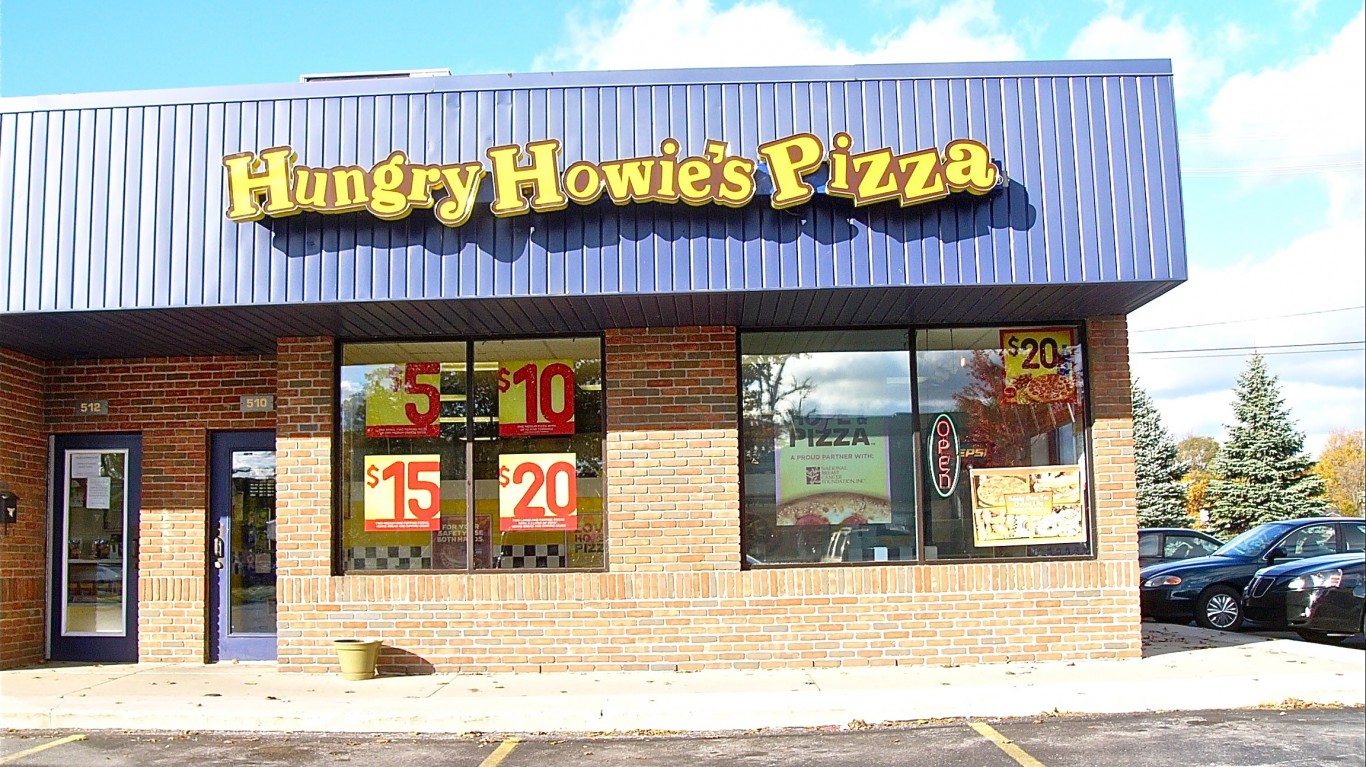
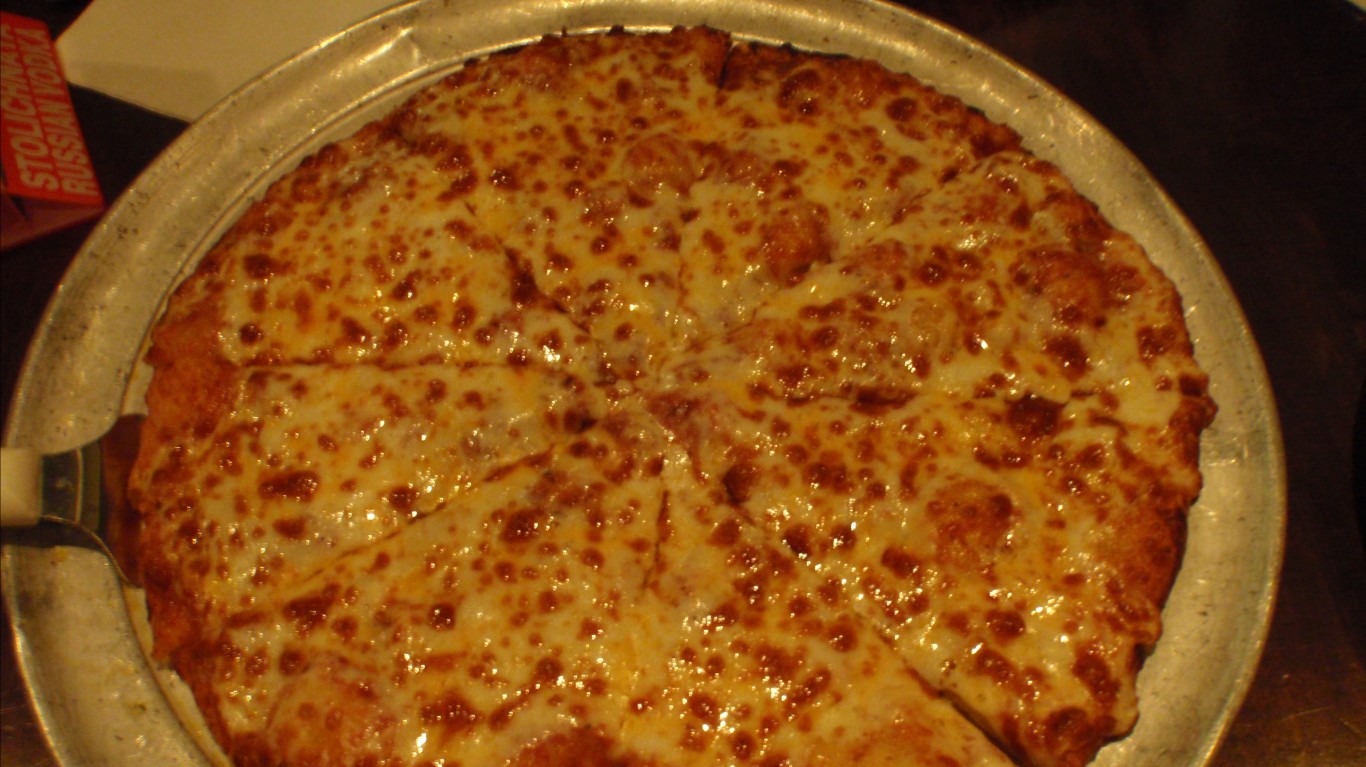
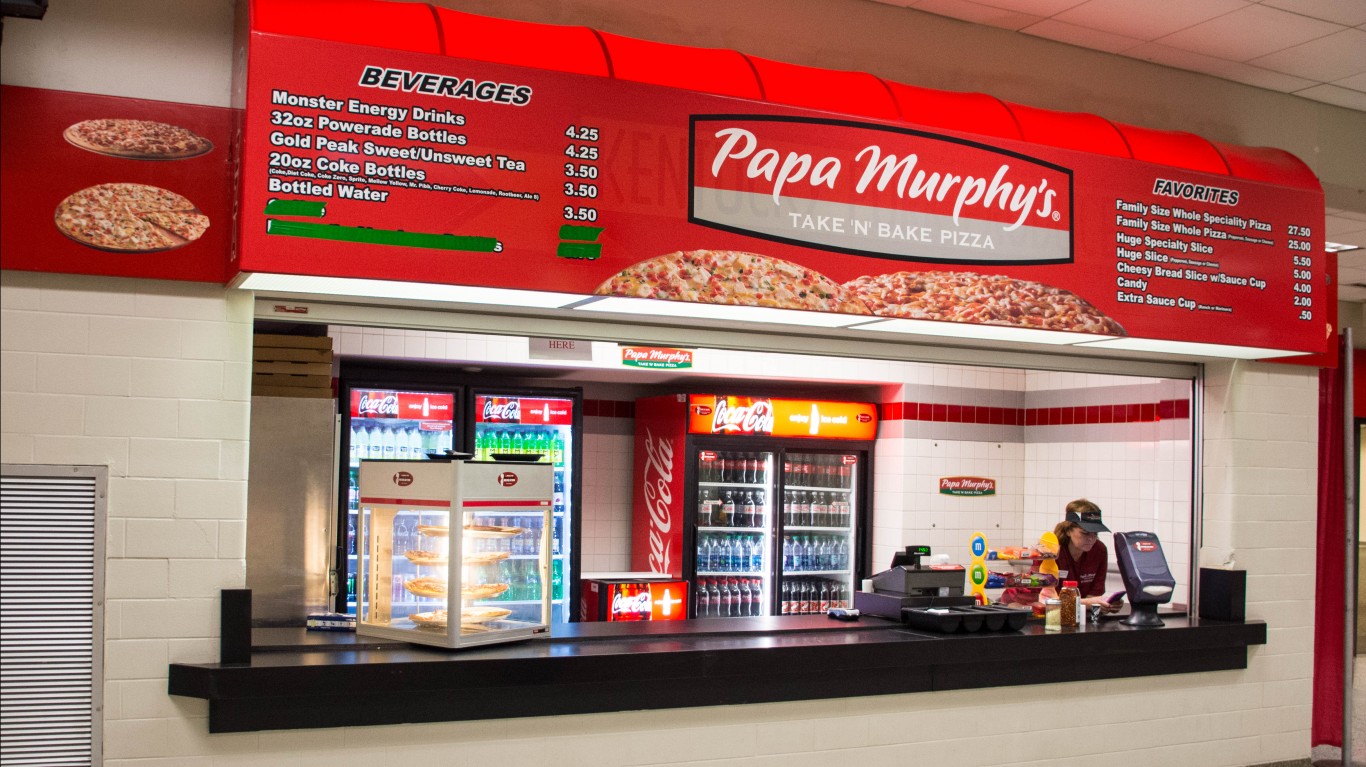
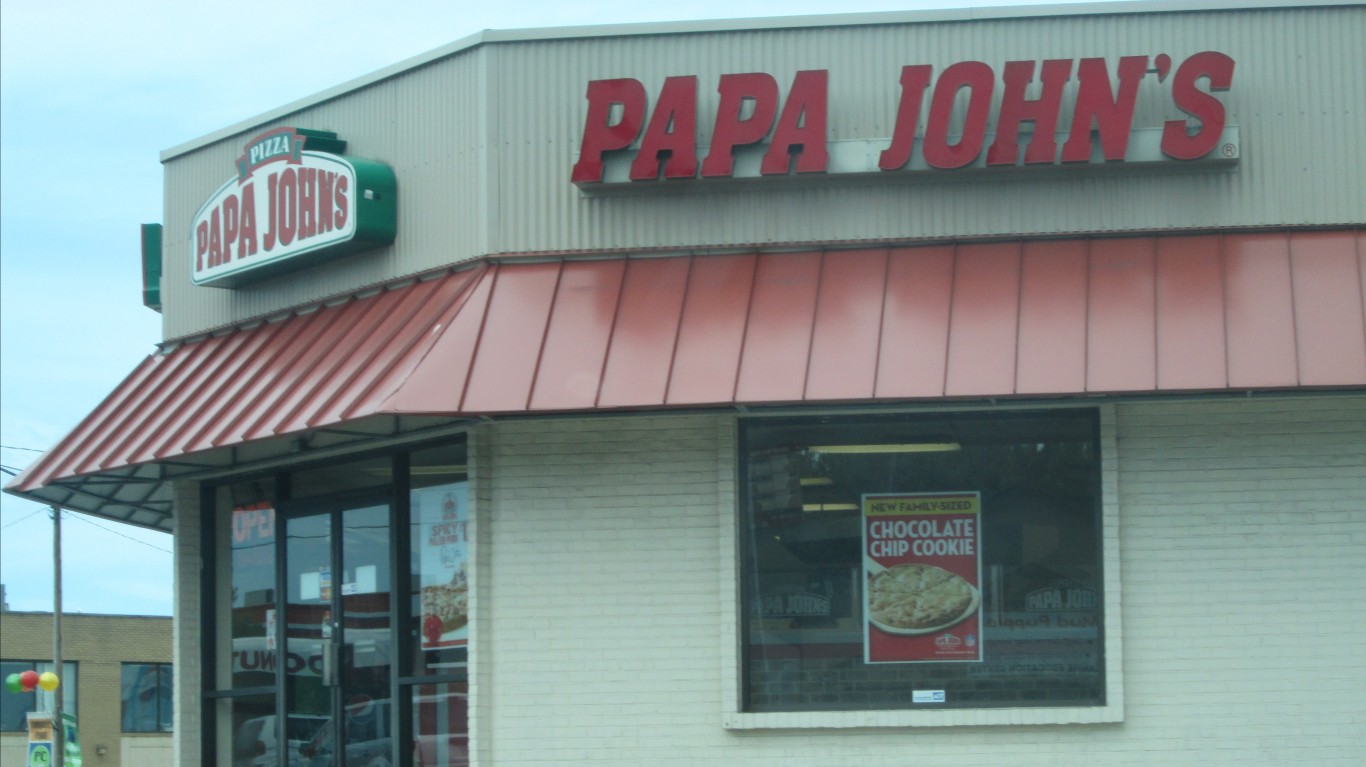
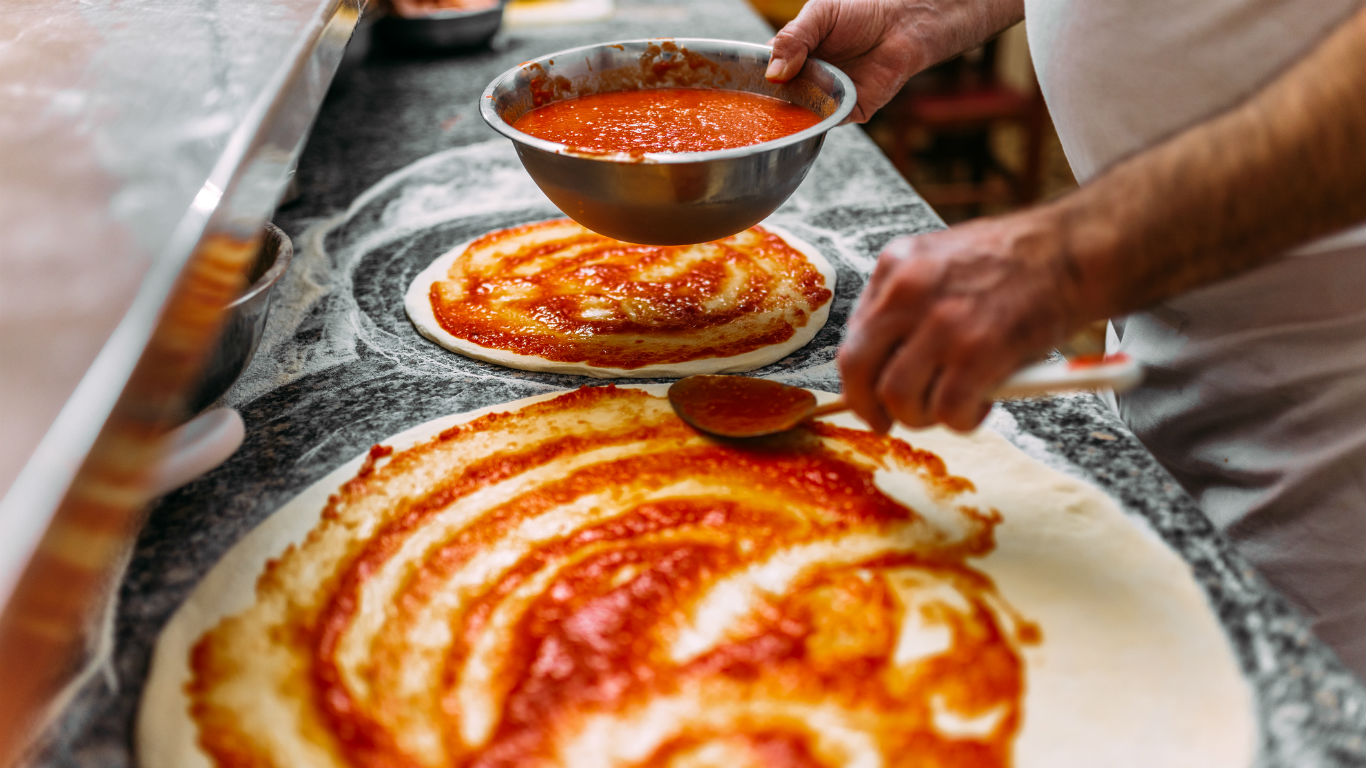 24/7 Wall St.
24/7 Wall St.